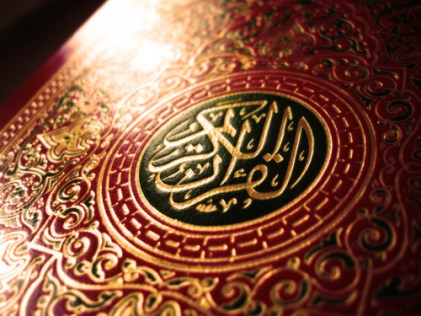Need a better understanding of this verse…
Assalamoalikum ,
I have limited knowledge and with my limitation I could not understand the meaning of below verse correctly .Can some one please throw some light on it?
As-Salamu `alaykum. What is the explanation of the verse that reads:
“Women impure for men impure, and men impure for women impure and women of purity are for men of purity, and men of purity are for women of purity: these are not affected by what people say: for them there is forgiveness, and a provision honorable.” (An-Nur: 26) .
We have seen cases where some men/women in adulterous relationship married to some good person .
There is one good link from below sites but I need better explanation like if some spouse is in adulterous relationship than can we assume that other spouse too might be adulterous ?
http://www.onislam.net/english/ask-the-scholar/muslim-creed/muslim-belief/175267.html
Logical


 Entries(RSS)
Entries(RSS)
Wa 'alaikum as-salaam warahmatullahi wabarakaatuh brother Logical,
I'm not a scholar myself, but we may both share with one another, based on what we understand from the scholars, inshaAllah.
There are two correct interpretations regarding the mentioned ayah...
First interpretation:
Second interpretation:
Both the first and second interpretation could be combined this way:
----------------------------------------------------------------------------------------------------
You question is related to the second interpretation. And as I mentioned above, this interpretation is supported by an earlier ayah in the same surah (Quran 24: 3).
There are two parts of this interpretation--the ruling part of it, and the nature part of it. The ruling part of it is to forbade the believers from marrying those who are engaged in the act of zina and shirk with no shame nor repentance. The nature part of it implies that, good people naturally do not desire to be in relations with bad people. A believing man will not desire to marry a woman who is engaged in zina or shirk (otherwise he himself likes that act, or is either engaged in zina or shirk), nor will a believing woman desire to marry a man who is engaged in zina or shirk (otherwise she herself likes that act, or is either engaged in zina or shirk). This is a fact understood by human nature, however it has been mentioned to be a reminder for us, and furthermore as a ruling.
Before Islam, most of the people were not believers, instead they were engaged in either zina or shirk, or both simultaneously. Islam forbade those among them who repented, embraced Islam, and became believers from marrying those who didn't repent nor believe. This is supported by an ayah in surrah al-Baqarah. Allah subhanahu wa ta'ala says:
The ayah (Quran 24: 26) is usually taken to mean that, Allah (either by His laws or decrees) will not make a believer (who has not committed zina before) marry a former zani, even if he/she has repented sincerely, however, this is a common misconception. This becomes clear when the matter is looked at in other ways, such will Allah make a believer (who has not committed shirk before) marry a former mushrik when he/she repents and become a believer? Or will Allah make a believer who (who has not committed zina before) marry a former mushrik when he/she repents and become a believer? The answer is clear in the ayah (Quran 2: 221). If a former mushrik whose sin is worse than zina, was allowed to marry a virgin believer, then this implies that a former zani is allowed to marry a virgin believer, however, the condition is a sincere repentance and becoming a believer in both situations.
After all, who is a believer in the sight of Almighty Allah (not in the sight of humans)?
Allah subhanahu wa ta'ala says:
----------------------------------------------------------------------------------------------------------------
To answer your question:
If the other spouse was aware that they were marrying someone who is engaged in adulterous relationship, then they themselves are either engaged in adulterous relationships or are advocate/supporter of adultery. However, if they didn't know, then it doesn't mean anything. However, Islam forbade them to continue marital relationship with them (after discovering it during the marital relationship) until they repent sincerely.
Hope this helps at least in some way, and Allah knows best.
JAZAK Allah brother for such a detailed and clear answer .It helped .
BaarakAllahu Feek Akhi!